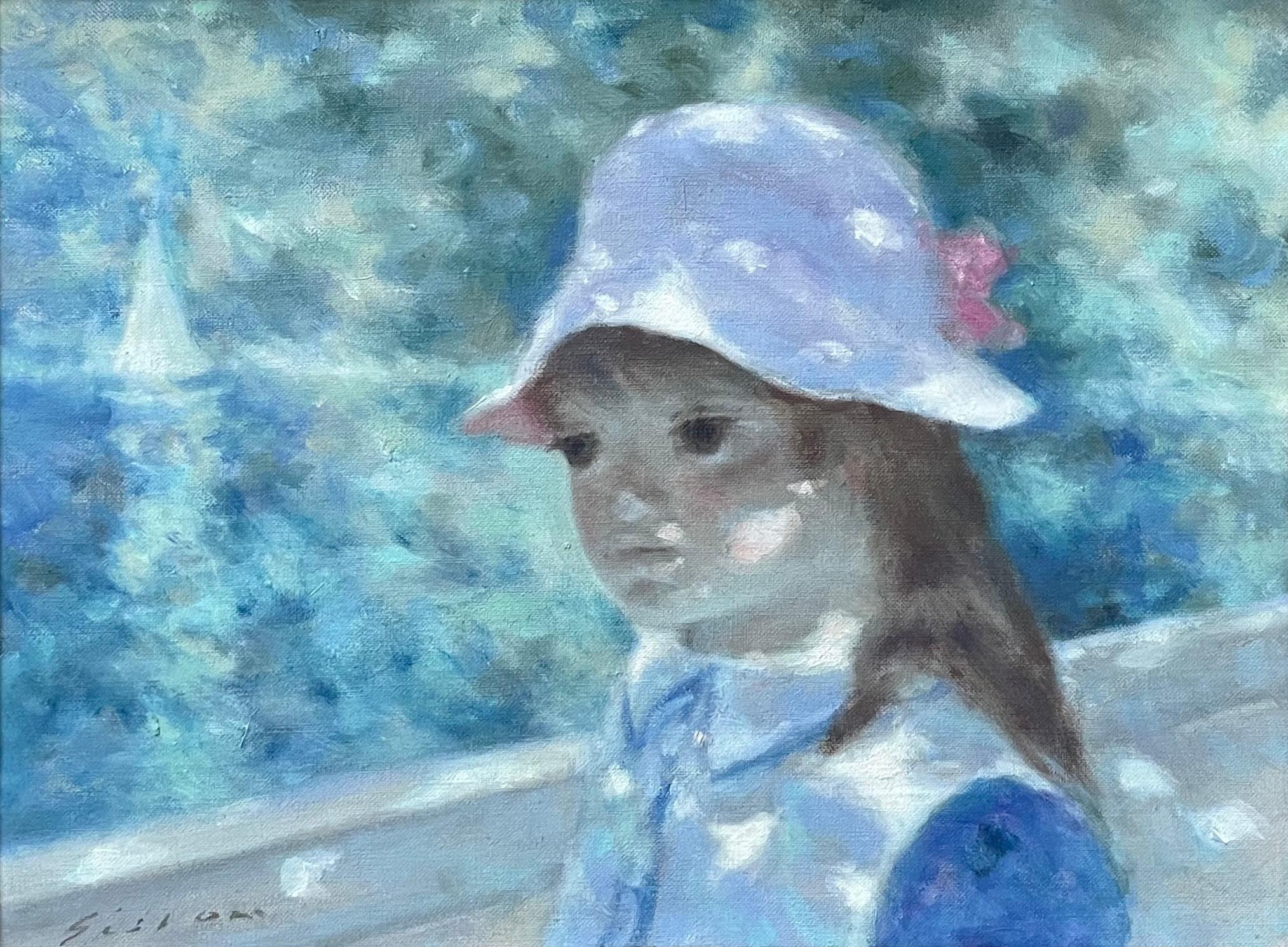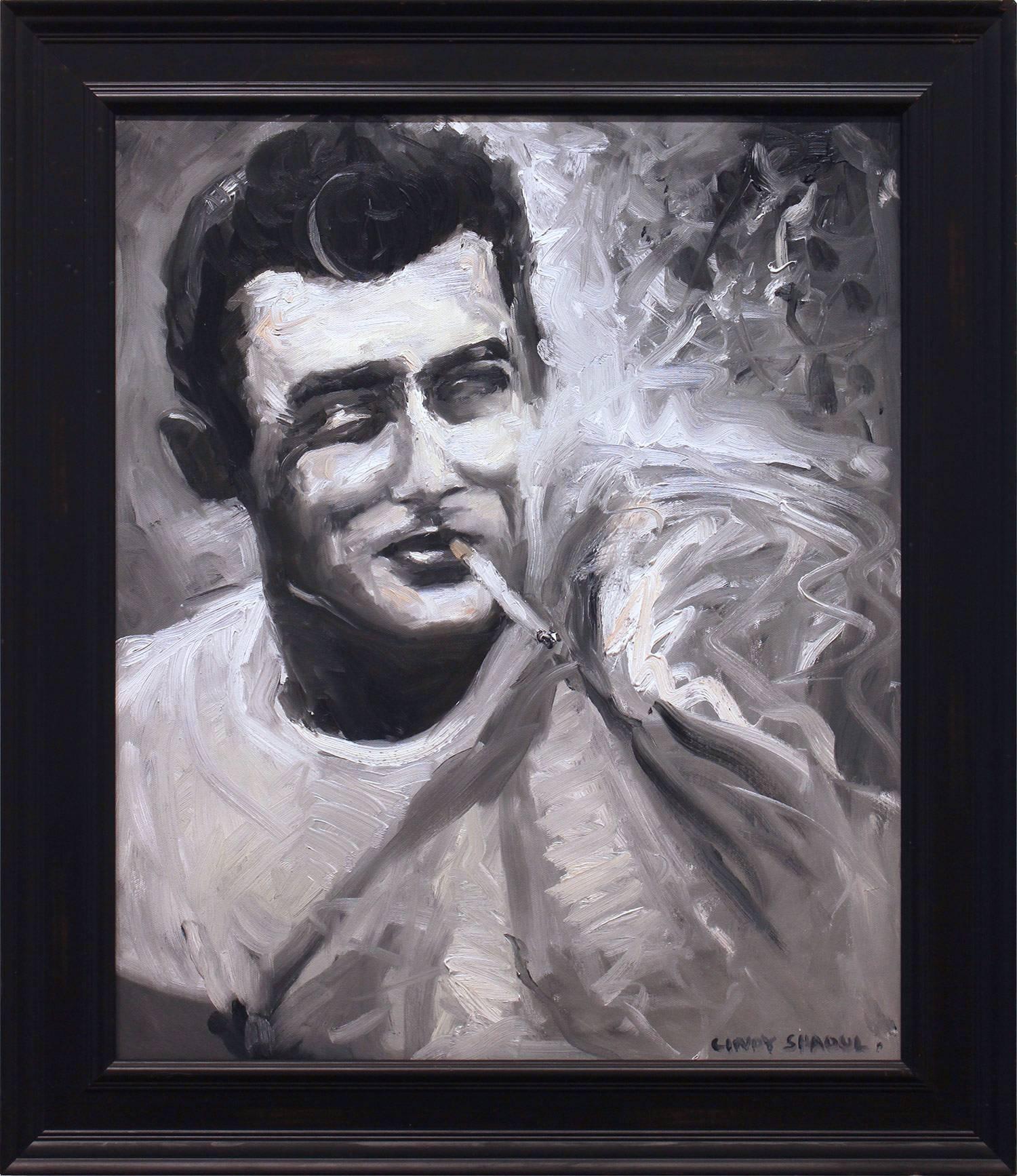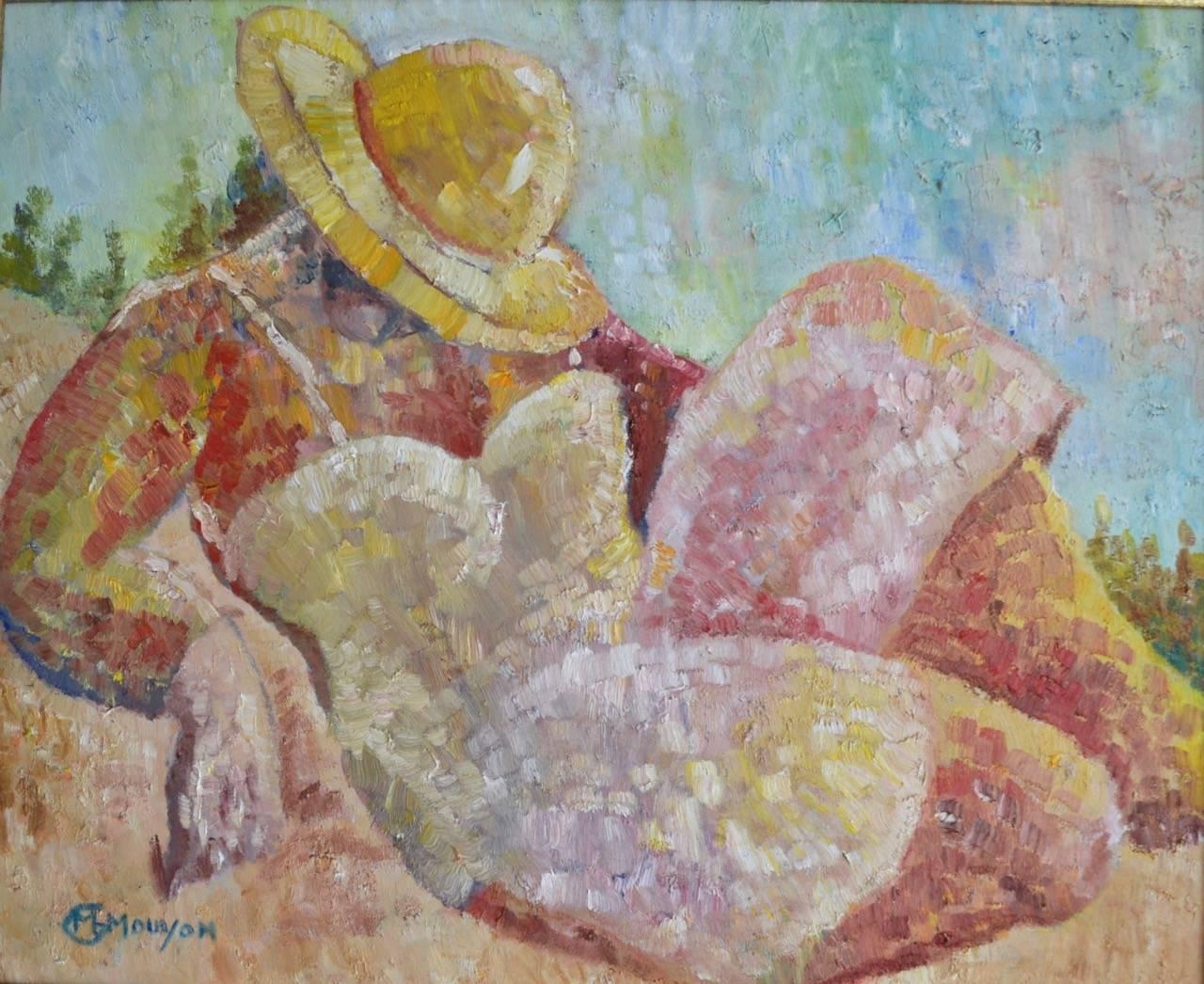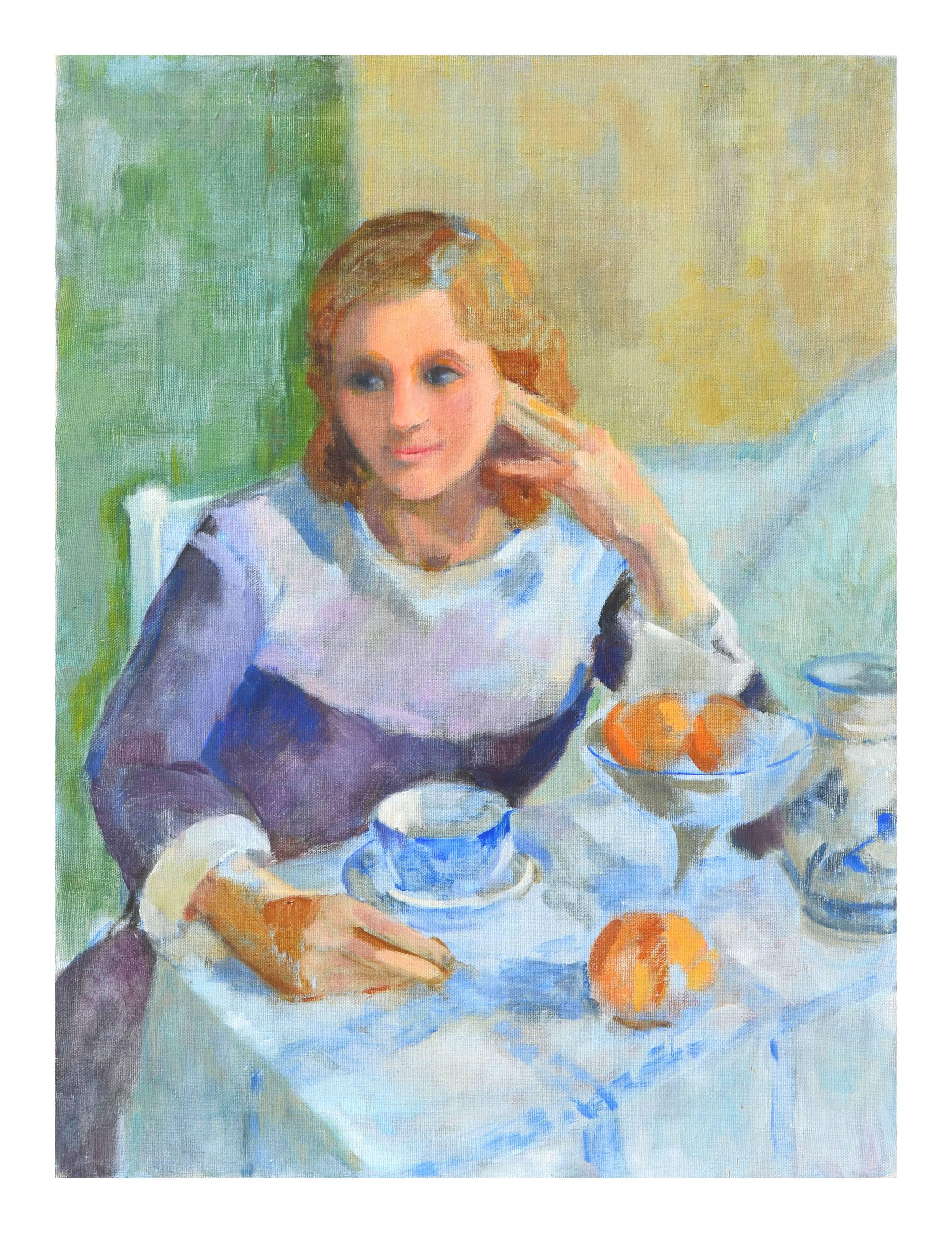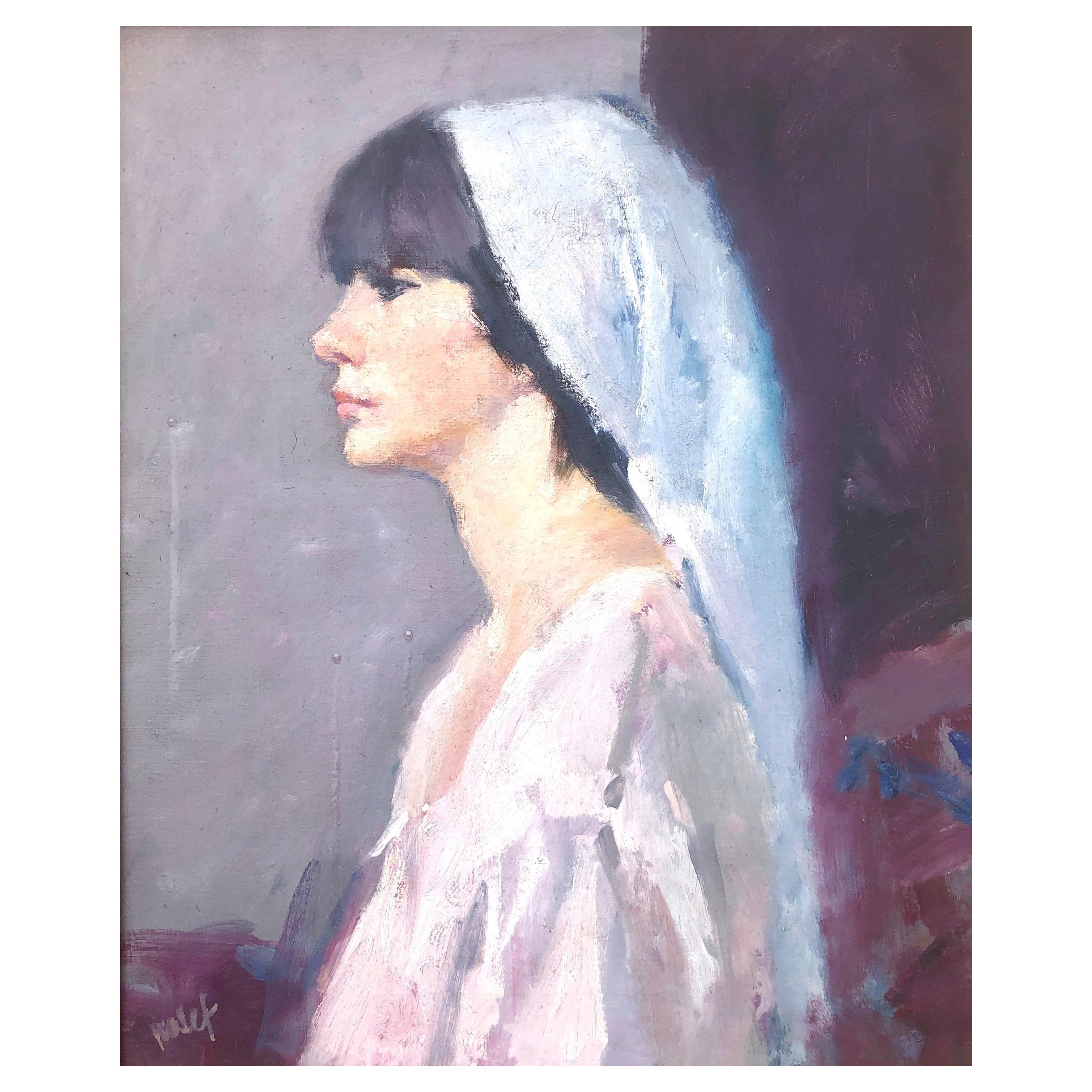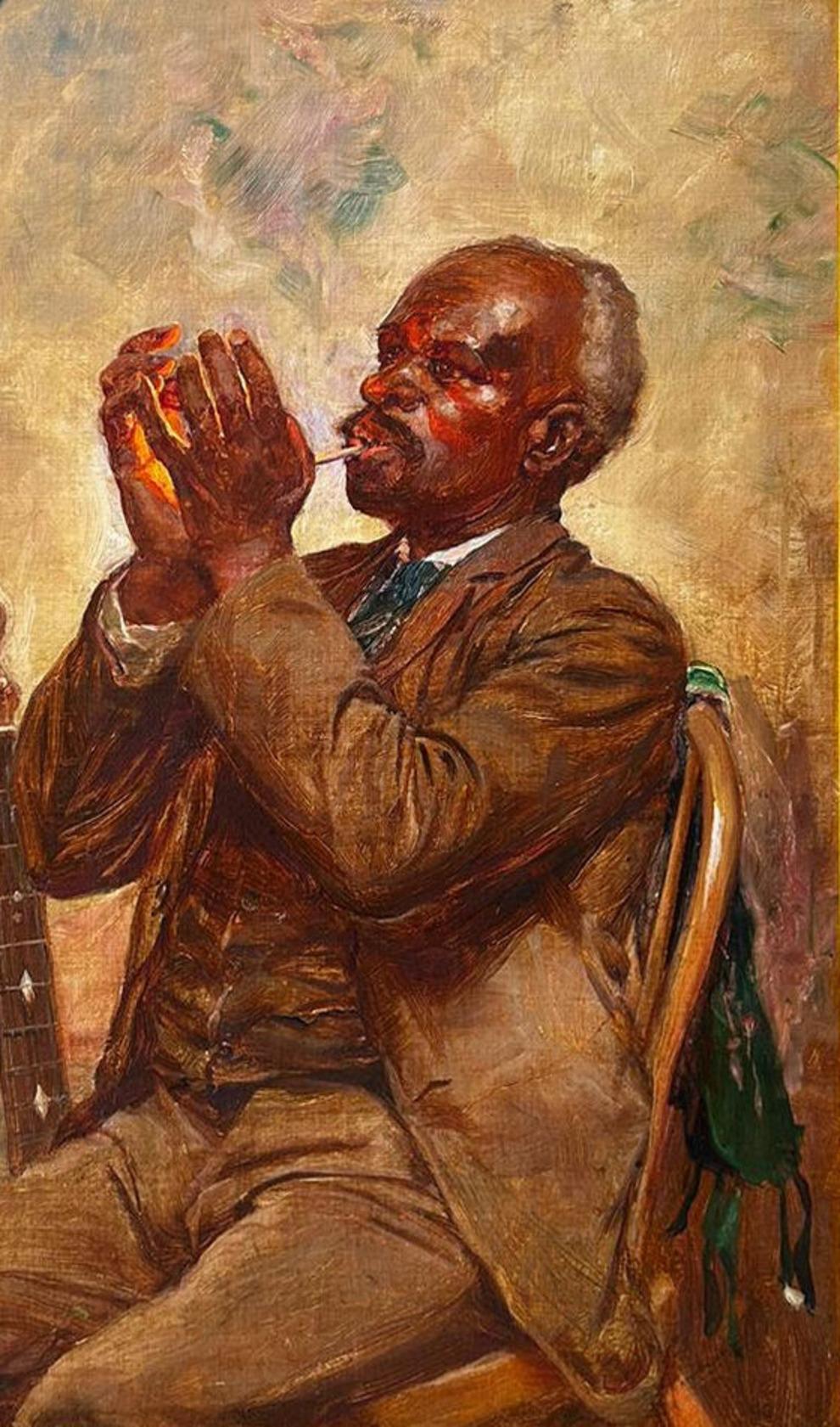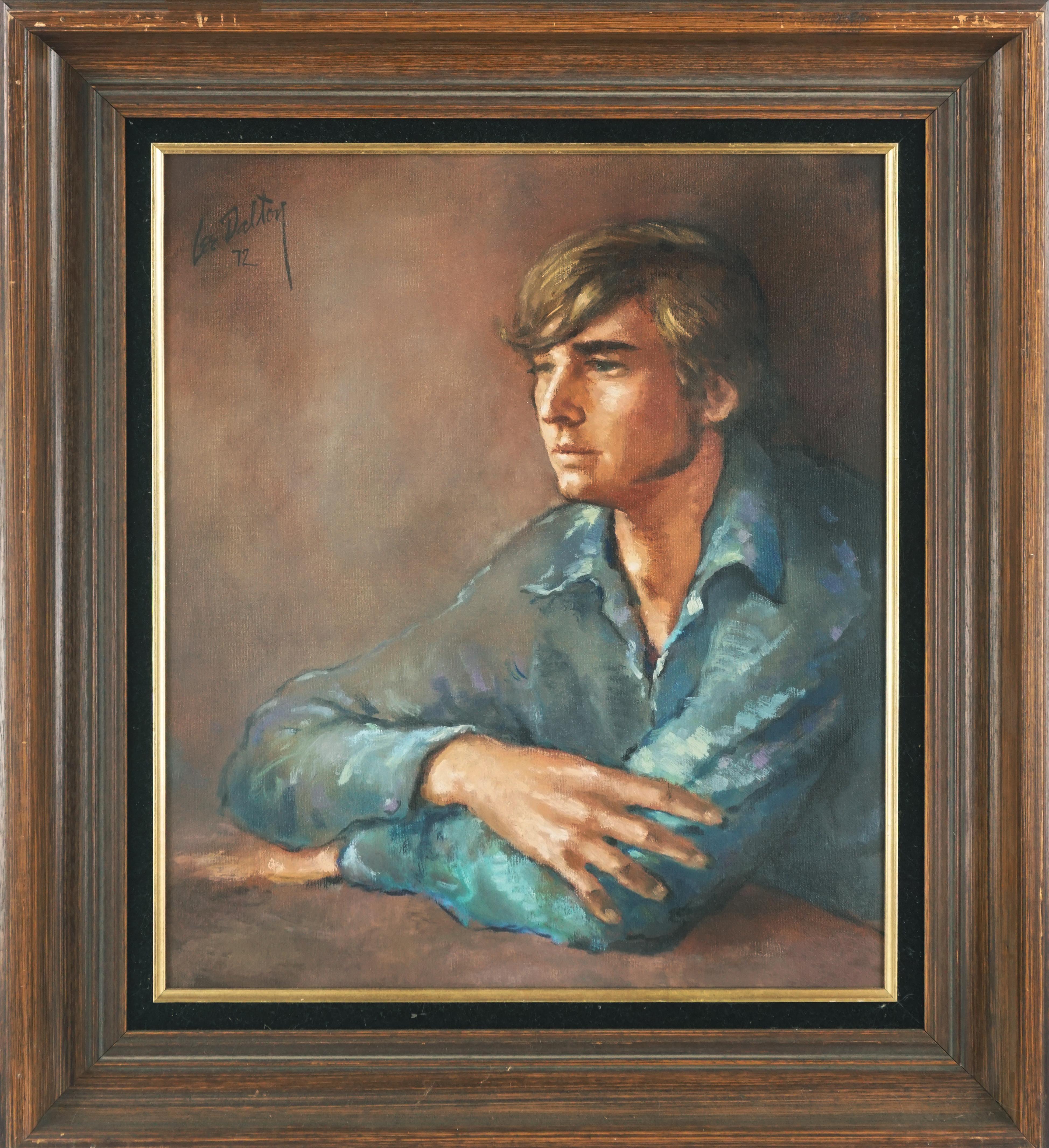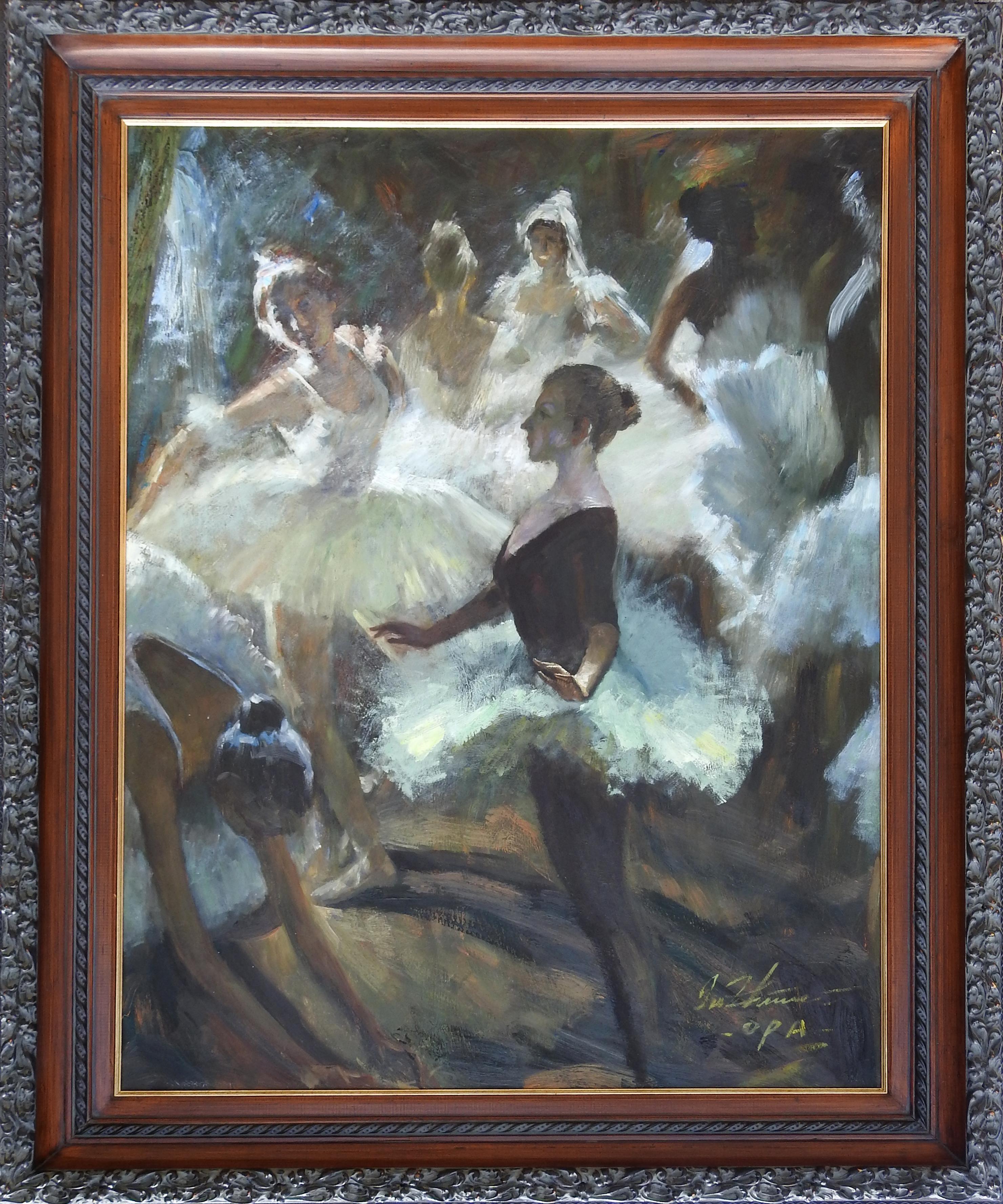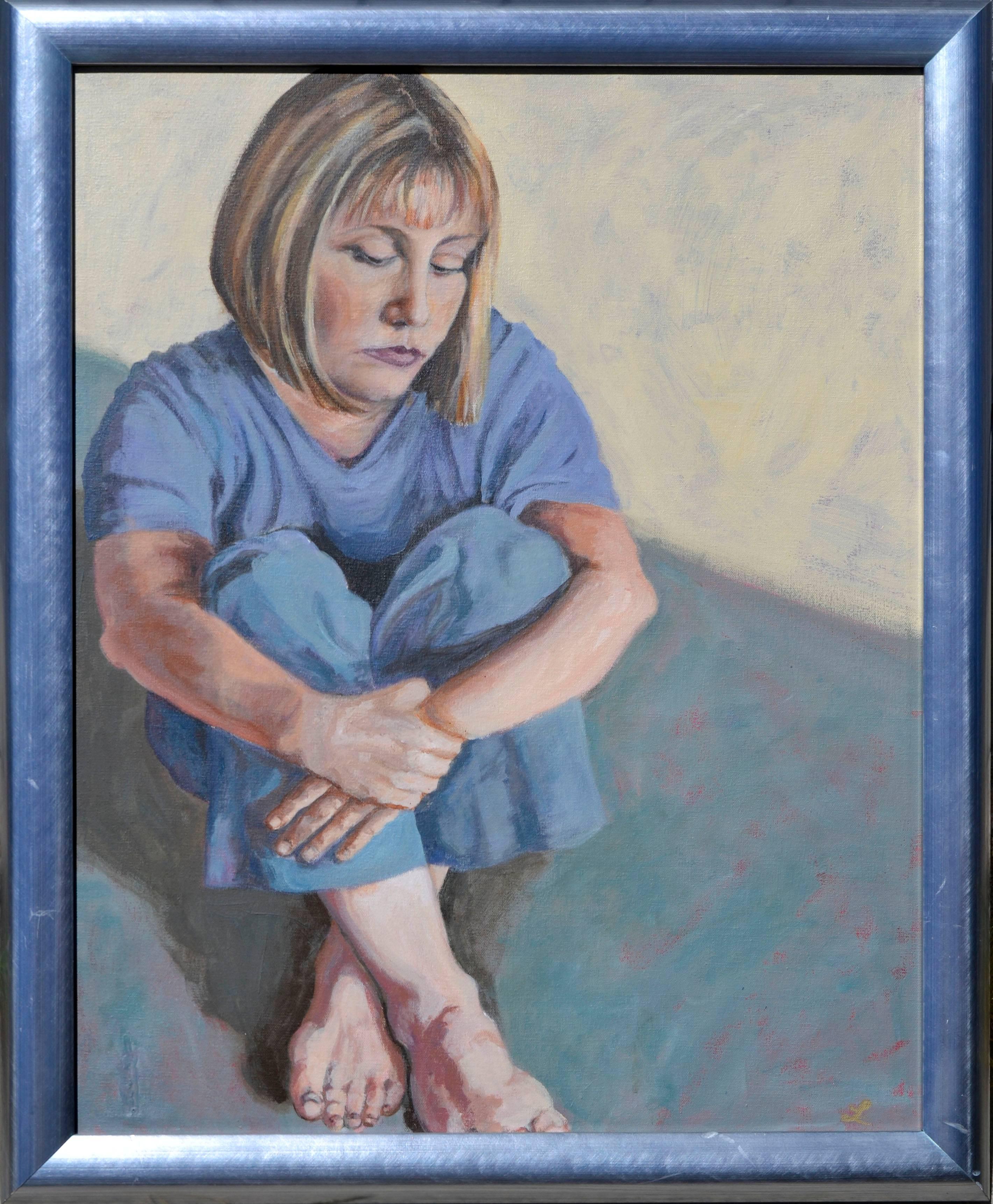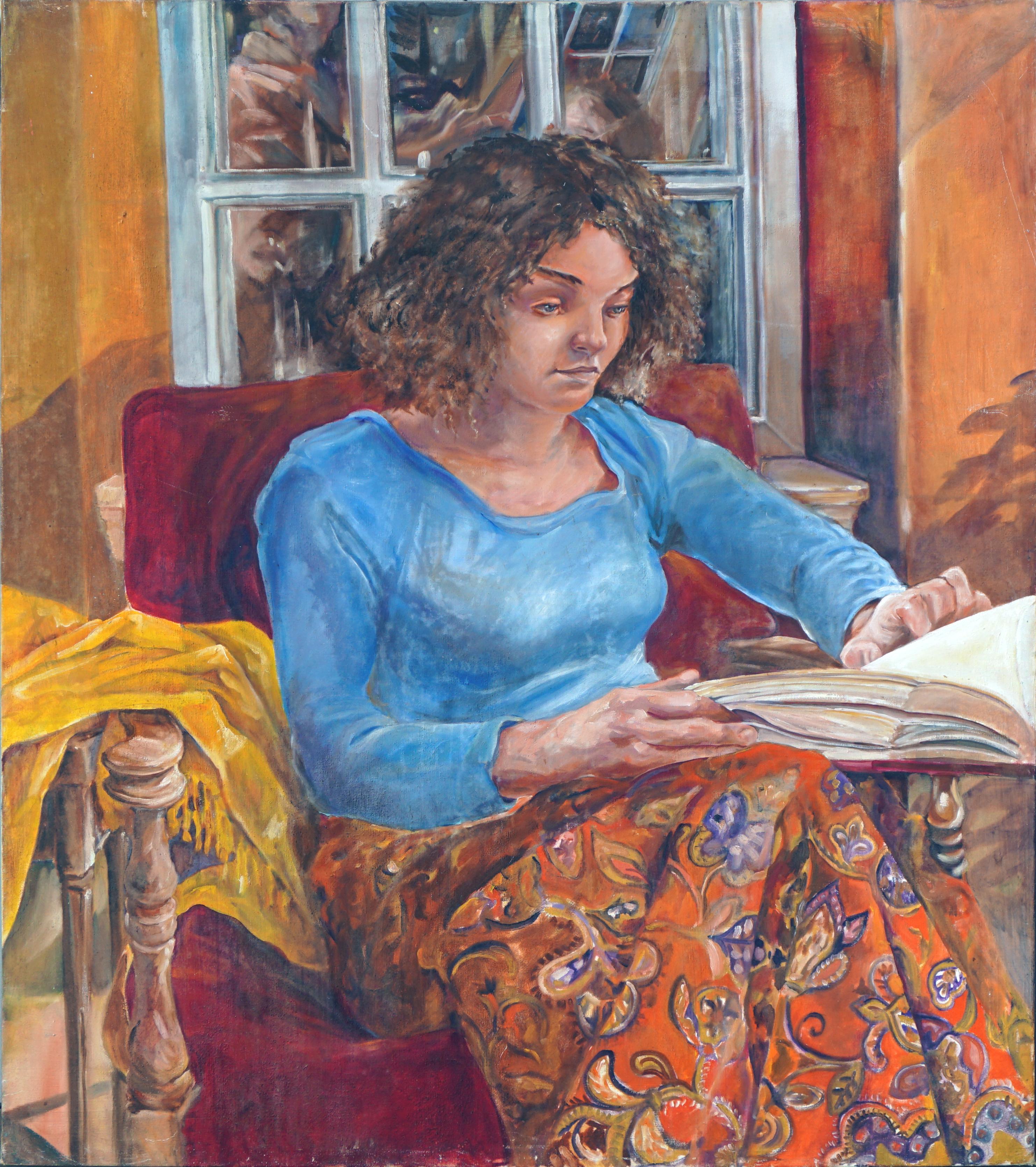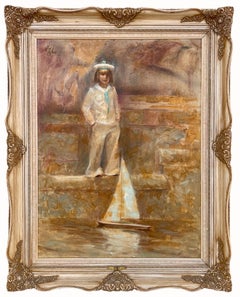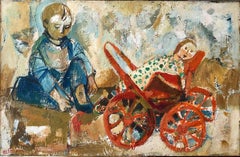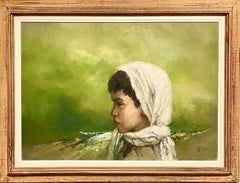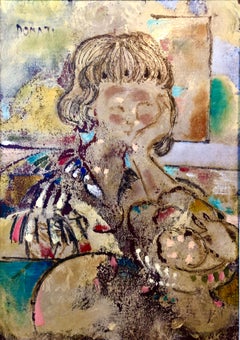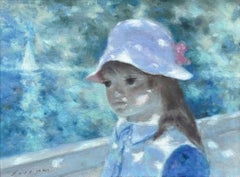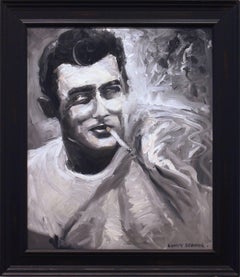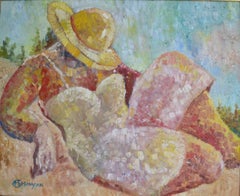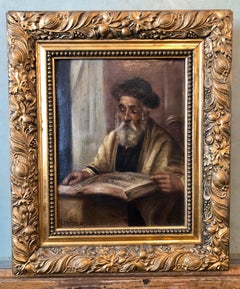
Pre War European Hasidic Rabbi Portrait German Judaica Oil Painting
Want more images or videos?
Request additional images or videos from the seller
1 of 8
UnknownPre War European Hasidic Rabbi Portrait German Judaica Oil Paintingc.1930s
c.1930s
Price:$948.40
$1,200List Price
About the Item
- Creation Year:c.1930s
- Dimensions:Height: 14 in (35.56 cm)Width: 12 in (30.48 cm)
- Medium:
- Movement & Style:
- Period:
- Condition:good for age. minor wear. minor wear to varnish.
- Gallery Location:Surfside, FL
- Reference Number:1stDibs: LU38214692852
About the Seller
4.9
Platinum Seller
Premium sellers with a 4.7+ rating and 24-hour response times
Established in 1995
1stDibs seller since 2014
1,788 sales on 1stDibs
Authenticity Guarantee
In the unlikely event there’s an issue with an item’s authenticity, contact us within 1 year for a full refund. DetailsMoney-Back Guarantee
If your item is not as described, is damaged in transit, or does not arrive, contact us within 7 days for a full refund. Details24-Hour Cancellation
You have a 24-hour grace period in which to reconsider your purchase, with no questions asked.Vetted Professional Sellers
Our world-class sellers must adhere to strict standards for service and quality, maintaining the integrity of our listings.Price-Match Guarantee
If you find that a seller listed the same item for a lower price elsewhere, we’ll match it.Trusted Global Delivery
Our best-in-class carrier network provides specialized shipping options worldwide, including custom delivery.More From This Seller
View AllLarge American Impressionist Painting Sailor Girl with Toy Boat Richard Zolan
By Richard Judson Zolan
Located in Surfside, FL
Richard Judson Zolan (1931-2001)
"Be Calm"
A sailor girl (or sailor boy) with a toy boat in a pond.
Oil painting on canvas, hand signed upper left,
Dimensions 40 x 30”, framed to...
Category
20th Century American Impressionist Figurative Paintings
Materials
Oil
Israeli Oil Painting Ruth Schloss Child, Doll, Wagon, Kibbutz Social Realist Art
By Ruth Schloss
Located in Surfside, FL
Large magnificent colorful Ruth Schloss oil painting of a child with a wagon with a doll or a baby in a carriage stroller.. Signed in Hebrew
size measures 31x43 with frame , 23x35.25 without the frame. (this is being sold unframed).
Ruth Schloss (22 November 1922 – 2013) was an Israeli painter and illustrator who mainly depicted neglected scenes such as Arabs, transition camps, children and women at eye-level as egalitarian, socialist view via social realism style painting and drawing.
Schloss became Israeli painting’s sensitive, conscious, remembering eye.
Ruth Schloss was born on 22 November 1922, in Nuremberg, Germany, to Ludwig and Dian Schloss, as the second of three daughters of bourgeois assimilationist Jewish family well-integrated into German culture. As the Nazis came into power in 1933, her family immigrated to Israel in 1937, and settled in Kfar Shmaryahu, then an agricultural settlement. Schloss studied at the Department of Schloss graphic design at "Bezalel" from 1938 to 1942 alongside Friedel Stern and Joseph Hirsch. She was a realistic painter who focused on disadvantaged people in the society and social matters as an egalitarian. Her realism was thus an “inevitable realism,” motivated by an inner necessity: the need to observe reality as it is.
Her painting repeatedly addressed the door pulled from its frame, employing drawing’s unique ability to stop time and prolong the image’s persistence in the retina, she repeatedly committed to paper - in a matter-of-fact, non-evasive manner devoid of mystery – man’s tendency to generate chaos, suffering and pain.
Throughout her life, Schloss remained minimalist. Painting about human fate was the main subject of her artworks. Her natural inclination was to describe the darker aspect of human existence.
1930s
The Schloss household was characterized by open, liberal spirit, in keeping with the parents’ progressive views. It deeply influenced Ruth’s mental development, as she learned to tie culture and art with sensitivity towards the weak and underprivileged.
In Jerusalem, she joined a commune of Hashomer Hatzair in which she shaped her socialist views, which she maintained throughout her long career.
1940s
In this period she mainly depicted landscapes of kibbutz and wretched women living hard life, children in huger, older people, refugees. After completing her art studies, Schloss joined a training group at Kibbutz Merhavia in 1942, and after two years moved to Karkur region, the nucleus established Kibutz Lehavot Habashan in the Upper Galilee. Through this time, she fell in love with the surroundings and drew landscapes. They are simple and direct with fresh, lucid lines. These paintings were selected as the main works of her first exhibition in 1949.
In early 1945, Schloss started to draw illustrations in the children’s magazine Mishmar Leyeladim, and designed the logo of Al Hamishmar, the paper’s new name in 1948. In 1948, upon the founding of Mapam (United Workers’ Party), she designed her party’s emblem, which became a well-known icon. She kept working as an illustrator for Mishmar Layeladim until 1949.
"Mor the Monkey" project yielded financial profits and this income was used for a study trip to Paris for two years. She was succesfull as illustrator however, she had inner conflicts of her identity as witnessed painter toward neglected class in Israeli society.
First Exhibition at Mikra-Studio Gallery, 1949
She presented forty drawings on paper in her first solo exhibition, representing a selection of the themes of kibbutz landscape, its lifestyle. Schloss confidently proposed her direction through simplicity without using colors in her drawings.
1950s
Between 1949 and 1951, she studied at the Académie de la Grande Chaumière in Paris.
She began working in oils, with which she continued throughout the 1960s.
The exhibition “Back from Paris” opened in November 1951 at Mikra-Studio Gallery .
In 1951 she married Benjamin Cohen, who served as chairman of the national leadership of Hashomer Hatzair Workers Party in Tel Aviv. He was a theoretician and a man of principle, highly esteemed by its leaders who became a professor of history at Tel Aviv University. In 1953, following the Mordechai Oren affair and the publication of Moshe Sneh 's followers from Kibbutz Artzi, she and her husband left the kibbutz and moved to the agricultural farm, Kfar Shmaryahu, where she lived until her death.
At a certain point in Israeli history, segments of the socialist movement felt that Israel should become part of the Communist bloc, rather than seek the support of the western world. Because the Schloss couple support of Moshe Sneh’s left-wing party, they had to leave the kibbutz.
She loved to depict ordinary women as figurative on her painting without hiding or making up anything. The poet Natan Zach wrote about her works in 1955: “Her motto remains that which has been all these years: life as it is, without bluffing."
Schloss’s “Pietà” (1953) became a universal cry expressing the pain of mothers on either side of the divide. In the late 1950s, she was the mother of two daughters. When she drew her daughters, unlike the universal babies she depicted, naked and with clenched fists, the painting of her children employed babyish sweetness to the full in a quiet, peaceful and heart-stirring filling rather than urgency. She also painted children in the transition camp and Jaffa in the 1950s and 1960s.
1960s-1980s – The period of Studio in Jaffa
Schloss painted at a studio in Jaffa from 1962 till 1983. In this time, she turned her interest to people around her more than kibbutz – the children, mothers, and poor workers, the alleys and houses. She opened the space to the street and its dwellings, built interactions around it, and was nurtured by the presence of the outside in her work.
1960s Schloss familiarized to an Arab woman, Nabava, lived in poor. Schloss returned to painting images of old people later, and she called her painting figurative elderly people in the old age homes “waiting”.
In the late 1960s, Ruth discovered acrylic paint and never turn back to oil painting.
In 1965 Schloss devoted a series “Area 9 (1965)”, dedicated to the demolition of Israeli-Arab houses and the expropriation of the land, and carried a definite socio-political messages. The series was exhibited at Beit Zvi, Ramat Gan, in 1966. She was the only artist who addressed the result of the Six-Day War immediately afterward. In 1968, Schloss and Gansser-Markus presented “Drawing of War” in Zurich gallery. She expressed the war as an ultimate expression of destruction and ruin, regardless of victors and vanquished.
1970s In late 1970s Schloss began printing the selected photograph directly on the canvas, posterior reworking it in acrylic. She decided to print her work at Har-El Printers in Jaffa, and these became the surface of her painting. This technique was mainly adopted in two large series: Anne Frank (1979-1980) and Borders (1982). Through this technique she placed the figure of elder Frank next to that of the famous young Frank, and released it at the exhibition at Bet Ariela Cultural Center, Tel Aviv, in 1981. The series touched upon the Nazi Holocaust.
1980s The Lebanon War raised the question of “The Good Fence” and the effect of the war. She dedicated a large series Boarders, one of the most powerful image linked to the series is the figure of Yemenite woman raising her hand. She was the first to raise the Black Panthers demonstration to the level of a social icon. In the 1980s and again in 2000, the Intifada uprisings also led Schloss to the easel to render a good number of representational and symbolic works that in their way denounced Israel's political and military actions.
1990s – 2000s Ruth Schloss never had an exhibition in a major Israeli museum. Her works were presented in private galleries and small museums. The main museums, the Tel Aviv Museum of Art and the Israel Museum, included her works only in group exhibitions, and only in 1991 was her retrospective exhibited at the Herzliya Museum.
In the 2000s, Schloss’s metaphors turned into animal kingdom and Bedouins in the south. A huge rhinoceros, birds of prey, and other "bad animals," as Cohen Evron, daughter of Ruth, calls them and "I connected this to the Nazis," said Schloss. Schloss' work after she didn't find human expression able to transmit the endless cruelty she saw in Israel's political mentality.
Schloss also continued to follow and collect documentary photographs of destructions of houses from the war, the Intifada, the sequence of her work about ruin from 1949 to 2005, was a cumulative testimony about the painful history of Israel and Palestine.
In 2006, a large retrospective exhibition of her work was presented at the Museum of Art in Ein Harod, curated by Tali Tamir.
Education
1938-41 Bezalel Art Academy, Jerusalem, with Mordecai Ardon
1946 painting course for Kibbutz Artzi artists with Yohanan Simon and Marcel Janco
1949-51 Académie de la Grande Chaumière, Paris
Awards and recognition
1965 Silver Medal, International exhibition in Leipzig, Germany
1977 Artist-in-Residence, The Cité Internationale Universitaire de Paris
Selected solo exhibitions
2004 “Micha...
Category
Mid-20th Century Realist Figurative Paintings
Materials
Canvas, Oil
Large Israeli Expressionist Orientalist Oil Painting Draped Child Kibbutz Art
By William Weintraub
Located in Surfside, FL
William (Sunny) Weintraub, Israeli (Born 1926)
Oil on masonite
William Weintraub (He was also known as Shlomo Weintraub and nicknamed Sonny Weintraub)
Genre: Impressionist
Subject: Portrait
Medium: Oil
Surface: Canvas
Dimensions: framed 24 X 32.5 canvas 19 X 27
In an ever-changing art world that embraces one movement after the next, the timeless art of portraiture can become lost. Portraiture is often associated with the royal paintings of centuries-old French kings, European nobility, and other wealthy individuals from art history's past. However, styles like Social Realism and Dutch genre painting spotlighted...
Category
Mid-20th Century Expressionist Figurative Paintings
Materials
Canvas, Oil, Board
Large Italian Modernist Surrealist Lady Mod Oil Painting "La Ragazza Ungherese"
By Lazzaro Donati
Located in Surfside, FL
Lazzaro Donati (Italian, 1926-1977), Framed oil painting "La Ragazza Ungherese" The Hungarian Girl. Dated 1961.
Framed: 36.25 x 28.5 inches. In good condition.
Lazzaro Donati was b...
Category
1960s Surrealist Figurative Paintings
Materials
Canvas, Oil
Oil Painting Woman Portrait French Armenian Modernist Jean Jansem Ecole De Paris
By Jean Jansem
Located in Surfside, FL
Jean Jansem (Hovhannes Semerdjian) 1920-2013
Hand signed upper left corner
Dimensions: 14 X 9.5 Framed 21 X 16.75
Jean Jansem (Hovhannes Semerdjian) 1920-2013
Bursa, Ottoman Turki...
Category
Mid-20th Century Modern Figurative Paintings
Materials
Canvas, Oil
Large Judaica Oil Painting Samuel Grodensky Hasidic Rabbi, Children in Jerusalem
Located in Surfside, FL
Samuel Grodensky (1894-1974)
"Hassidim"
Hand signed and dated "Grodensky '62" u.l.,
Titled verso in pencil on stretcher
31" x 27" canvas , 35 1/2" x 31 1/2" framed.
Large Fauvist Expressionist Jewish Family Oil Painting
This is done in an Expressionist style in Fauvist colors. Influenced by the Judaic artists of the early Israeli...
Category
1960s Expressionist Figurative Paintings
Materials
Canvas, Oil
You May Also Like
Young Girl in Summer, Andre Gisson
By André Gisson
Located in Fairfield, CT
Artist: Andre Gisson (1921-2003)
Title: Young Girl in Summer
Year: circa 1973
Medium: Oil on Canvas
Size: 9 x 12 inches
Condition: Excellent
Inscription: Signed, recto
ANDRE GISSON ...
Category
1970s Impressionist Figurative Paintings
Materials
Canvas, Oil
$4,000 Sale Price
20% Off
"James" Impressionistic Black & White James Dean Portrait Oil Painting on Canvas
By Cindy Shaoul
Located in New York, NY
A stunning depiction of James Dean done in an abstract impressionistic manner with a heavy use of paint and we also can find bold strokes of white, gray and black. Creating a black a...
Category
2010s American Impressionist Portrait Paintings
Materials
Canvas, Oil
"Riviera". Contemporary French Figurative Oil Painting
By Marie-Hélène Mouyon
Located in Brecon, Powys
Very colourful oil on canvas from well known French artist & illustrator Marie-Helene Mouyon who has exhibited in Paris. This idyllic Summer scene shows a reclining figure resting using the yellow hat to give shade from the hot afternoon...
Category
1990s Impressionist Figurative Paintings
Materials
Canvas, Oil
Shellfish Harvester in the Albufera of Valencia Spain oil on canvas painting
By Juan Gonzalez Alacreu
Located in Barcelona, Barcelona
Title: Shellfish Harvester in the Albufera of Valencia
Artist: Juan González Alacreu
Technique: Oil on canvas
Style: Luminist costumbrism
Dimensions without frame: 31.89 x 23.62 in
D...
Category
1990s Impressionist Figurative Paintings
Materials
Canvas, Oil
Tea Time Figurative in Original Oil on Canvas
By Patricia Gillfillan
Located in Soquel, CA
Tea Time Figurative in Original Oil on Canvas
Charming portrait of a young woman enjoying tea time by Patricia Gillfillan (American, 1924-2016). From a collection of her works. Unsig...
Category
1980s American Impressionist Figurative Paintings
Materials
Canvas, Oil
Female figure woman oil on canvas painting portrait
By Joan Palet
Located in Barcelona, Barcelona
Joan Palet (1911 - 1996) - Female figure - Oil on canvas
Oil measures 46x38 cm.
Frame measures 70x62 cm.
Joan Palet was born in Barcelona on March 28, 1911 in a family of sculptors ...
Category
1970s Impressionist Portrait Paintings
Materials
Canvas, Oil
$803 Sale Price
43% Off
Recently Viewed
View AllMore Ways To Browse
Europa Painting
Figurative Neoclassical Paintings
Flower Fairies
Girl Reading Painting
Oil Painting Elephant
Swim Sculpture
Swimmer Sculpture
Cat Pastel Paintings
Classic Car Paintings
Clown Oil On Canvas
Clowns Clown Oil On Canvas
Light And Dwell
Mother Baby Painting
Norman Rockwell Original
Cubist Flower
Oil Painting By Claire
Oil Painting Olympics
Safed Israel
